By Olukayode Oyeleye
Russia’s president, Vladimir Putin, is clearly now at his wit’s end. His gestures in the past one day or two were not those of someone who is winning — but rather that of who is losing — the war against Ukraine. War intelligence reports have undoubtedly reached both himself and his opponent, Volodimir Zelenskyy and it seems Putin now wants to save his face and create an impression that he chose to end the war on his own terms.
Let’s examine a few circumstantial evidences. The advances made by Zelenskyy’s men against those of Putin in the past three weeks are a pointer to a failing Russia on the battlefield. The low morale of Russian soldiers, their running short of critical supplies (especially food and fuel), the number of battlefield deaths recorded and the desperation with which new draftees are conscripted to the battlefield point in only one direction: Russia is losing the war.
Putin, a dictator, must have started seeing the handwriting on the wall indicative of an impending fall as potential draftees were resisting the draft. Over 260,000 young men have reportedly escaped from Russia to avoid being forcefully conscripted, and those so far conscripted are reportedly complaining of being poorly equipped in addition to being hurriedly trained for the war. Their short training and the poor equipment seem to place them at great disadvantage compared to those professional soldiers and self motivated and voluntary draftees from the Ukraine side.
Putin needs to remain at the top of government at home for him to remain relevant. Aware of this, he probably has commenced subtle efforts in fending off possible overthrow. In the past four weeks, his military and police have had to deal with suppressing protesters who are openly opposed to the continuation of the war against Ukraine. It might be that many who were initially in support have subsequently realised they were being fed with lies by Putin’s propaganda machine. Putin’s support base on this war therefore seems to be eroding fast.
Despite making arrests of thousands of Russian protesters, public outrage didn’t seem to have subsided. Putin must have realised the shame of his soldiers hurriedly abandoning their positions and military hardware while running away from the advancing troops of Ukrainian soldiers. His attention may have also been drawn to the prospects of a coup d’état, in which case he has deployed “elite guards” to monitor and arrest any suspect. This, alone, smacks of a sign of personal insecurity as the coup d’état may not only end his regime but also his life
The audacity of those who bombed the Kerch bridge connecting Crimea to the Russia mainland was obviously as upsetting as it was humiliating to Vladimir Putin. Not only was it a bold message to him that Ukraine was truly advancing and might soon take back Crimea, the bold statement of Zelenskyy that Ukraine will repossess all its land taken by Russia, including Crimea that was taken in a 2014 invasion, was truly instructive. Moreover, Zelenskyy has said it emphatically that he is prepared for negotiation with any other Russian president other than Putin. Such a statement can only come from an informed knowledge rather than from foolhardiness, especially with the war gains Ukraine has made in recent times.
Truth is always a casually in every war and that of Russia’s invasion of Ukraine cannot be different. To expect Putin to look weak in this circumstance is to have read the situation wrongly. The pounding of major towns and cities in Ukraine in the past 48 hours by Russia may not necessarily mean that Russia still holds an upper hand in the war. The barrage of missile attacks could be nothing but mere flexing of muscles so that Putin will not be thought weak. It has also been surmised that the resort to missile was to compensate for the limited number of foot soldiers on the ground as they abandon the territories they had earlier captured. Information filtering out pointed out that Putin is even running low on the heavy weapons which are not easy to quickly replace.
It seems as if the entire projection before launching out in February 24, 2022 has gone badly awry and the expenditure budgeted has been greatly overshot. War spendings are not investments that yield returns like manufacturing, at least not as quickly. It is clear that Russia’s economy is taking a direct hit in the short term and could experience serious recession and public backlash and outcry in the long term, particularly if food, transportation and other essentials are significantly affected.
Undoubtedly, the tide of public opinion and approval ratings turning against Putin may have forced his hand to begin some subtle attempts at fence mending. The international community is not hiding its disdain for Putin. The United Nations General Assembly (UNGA) meeting few days ago sent a clear message to Russia. While the speech of Ukraine’s representative was greeted with applause, that of Russia was received with cold indifference. Even Russia’s diehard allies now have to watch how they show their solidarity openly. China, in particular, must have been studying the Russian experience and this may affect its disposition towards Taiwan, especially, considering the recent political moves by the United States in support of that island country.
Fearing isolation and subsequent possible humiliation, Putin may have chosen to apply brakes on the Ukraine invasion. Or, how do we explain his recent moves reportedly on ending the war he unilaterally started? His foreign Minister, Sergei Lavrov, was quoted by Bloomberg as saying in a Twitter message that Moscow is prepared to consider “any proposals” for an end to the war in Ukraine, including a meeting between Vladimir Putin and the US president Joe Biden. Another Bloomberg tweet goes thus: Russian President Vladimir Putin says the UAE can play a “significant” role in efforts to reach a resolution in the war in Ukraine as he held talks with the Gulf nation’s ruler.
Why this soft-pedal approach at this time? Why considering talking to Biden that has railed at Putin and called him names? Why thinking of talking to a country that is at the forefront of supplying arms to equip Ukraine against Russia at this time? Obviously, Putin has seen the folly of his military adventure called “special military operations.” He may be backtracking without giving that impression outwardly. The meeting of 44 European countries in Prague, Czech Republic, last week must have further given Putin more reasons to worry as more European countries tend to isolate Russia and boycott its oil and gas, reducing their dependence from 40 per cent to a mere seven per cent in seven months. The war in Ukraine may end abruptly despite all threats of deployment of nuclear arsenal as that threat alone, if made good, could end the country called Russia as well as consume the man called Putin. The NATO defence ministers’ conference has only just announced that they will give more military hardware support to Ukraine in the fight against Russia. This will further weary Russia and reduce its relative strength in the war.
In the end, Putin will likely come out with his fingers severely scorched and his country more impoverished because of the wasted material and human resources as well as time spent embarking on the war that was originally intended to last few days but now has taken seven months. It will be seen in the international community as a triumph for democracy over authoritarianism. How Ukraine is rebuilt comes next, and what Russia contributes to that rebuilding, which will very likely stretch Russia’s capacity as Russia will be forced to pay a price in material terms. At the moment, it is good to pause and observe as things unfold, to see how Russia and Ukraine fare after the invasion, and how the world reacts to the unfolding events.
The failure of Moscow’s conventional military to crush Ukraine has pushed Putin to another option, using mercenaries to fight. The problem with the mercenaries is that they are not strictly as subject to the central authorities as state military is. The Wagner mercenaries, meant to augment the official military is a further symptom of Putin’s desperation. This needs to be viewed in the context of Russia’s foreign relations with Africa. The unwarranted military adventure of Russia in Ukraine provides an evidence that Russia cannot — and should not — be relied upon for security partnership. The presence of Wagner mercenaries in some African countries needs to be viewed with unease and interpreted with suspicion. The recent frenzy of Mali military junta as well as that of Burkina Faso calls for concerns and introspection. The failure of ECOMOG forces to continue operations must have left such a vacuum for the Wagner mercenaries that have been recently accused of war crimes in Mali, killing nearly 500 civilians while deployed alongside Malian soldiers,
Altogether, some diplomatic blunders might be in the making by African countries opening their borders to these Russian mercenaries who have hidden interests other than security. Alliance with Russia by African countries may turn out to be a huge mistakes after all as Russia desperately looks out for external resources to galvanise and fund its aggression against Ukraine. In Sudan, these mercenaries have been implicated in their involvement in gold mining, a completely different mission outside security. The same could be possible in Mali, easily the fourth largest gold mining country in Africa. For the Burkina Faso, their ulterior motive may unfold anytime soon. African countries keen on foreign partnership on security need to review their strategies on Russia. They also need to review the narratives coming from Russia that are premised on allegations that the West wants to keep and sustain a unipolar world. Emergence of a multipolar world built on Putin’s aggressive model is neither acceptable nor sustainable. But, given the vast differences between the Western and Eastern Europe, it is clear that Russia is bent on preserving the the very political and economic system that led to the collapse of the old Soviet Union, and would like to promote the sustenance of dictatorial regimes in Africa where a lot of efforts and resources have been spent to build democracies. Irrespective of whatever complaints African countries may have against the Western countries, the Russian model will not be the best alternative for Africa. It is important for African leaders to learn from Putin’s brash and irritable disposition and avoid putting Africa’s fragile eggs in Russia’s tattered and weak basket.
Dr. Olukayode Oyeleye is a policy analyst and a consultant







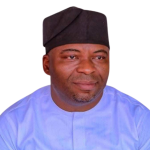

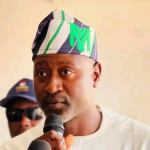
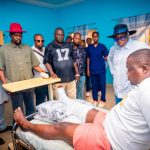
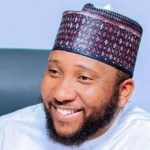


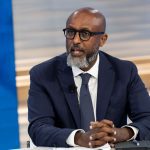









Leave a comment